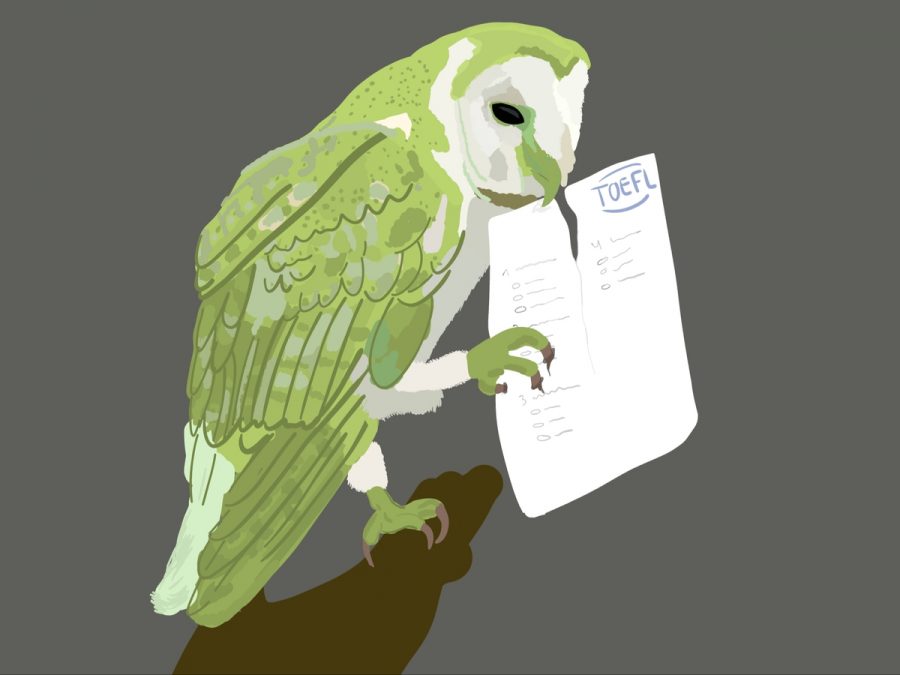Opt for an English proficiency test that is conscious of COVID-19
December 2, 2020
The UT community stretches around the world with over 5,000 international students from over 100 countries. To make the Forty Acres their new home, applicants from non-English speaking countries must submit a score for an English proficiency test, either the Test of English as a Foreign Language or the International English Language Testing System.
This year, universities all over the world adapted their application requirements to minimize the health and financial concerns of taking these expensive tests possibly in person during a COVID-19 pandemic. Over 1,400 educational institutions now accept the Duolingo English Test, an online English proficiency test that can be taken from home for a fraction of the cost.
UT does not.
It’s too late to change UT’s testing requirements for the 2020 admissions cycle, but as the COVID-19 pandemic rages on, the University must better accommodate its thousands of incoming international applicants by accepting the Duolingo test next year, in addition to the original two tests.
Dozens of public and private universities in Texas — including UT-Arlington, UT-Dallas, UT-El Paso, UT-Rio Grande Valley and UT-Tyler — already do this. Why hasn’t UT-Austin followed suit?
According to Shannon Neuse, director of the Graduate and International Admissions Center, the University does not see a need to accept the DET.
“TOEFL and IELTS have developed online versions of their tests and worked with local authorities to reopen test centers,” Neuse said in an email. ”These exams are now widely available, reducing the need for the University to adopt a temporary solution.”
However, almost half of TOEFL testing centers are currently closed due to the COVID-19 pandemic, and IELTS testing is indefinitely suspended in almost two dozen countries. Additionally, regional spikes in COVID-19 cases could cause unexpected closures.
Ziyad Sellami, a high school senior from Mohammedia, Morocco, who applied to UT as a radio-television-film major, can attest to these obstacles.
“I had to take the (TOEFL) in Rabat, Morocco’s capital, which is one and a half hours away from my house,” Sellami said. “When I arrived at the test center, I found that it was closed because of COVID-19.”
Sellami said he took the test a week later in Casablanca, the city with the most COVID-19 cases and deaths in Morocco.
“I had to pass through numerous police roadblocks because traveling from one city to another is prohibited, so that was a challenge,” Sellami said.
UT-Austin does accept an online version of the TOEFL that can be taken at home, but this alternative does not alleviate the test’s financial burden. In addition to a fee ranging from $180 to $300, students must pay extra if they want to send their scores to more than four institutions.
“Sending test scores to universities can be hard financially,” Sellami said. “It costs $20 for each (additional) school. That’s a bit expensive when you’re applying to multiple schools.”
Accepting the Duolingo test offers a solution to this issue. This at-home test costs $49, and students can send their scores to an unlimited number of institutions at no additional cost.
Clearly, UT-Austin is falling behind its peer institutions in making admissions more accessible to international students. To catch up, the University must join the rest of the UT system in adding the Duolingo test to its list of acceptable English fluency tests for the duration of the COVID-19 pandemic and beyond.



